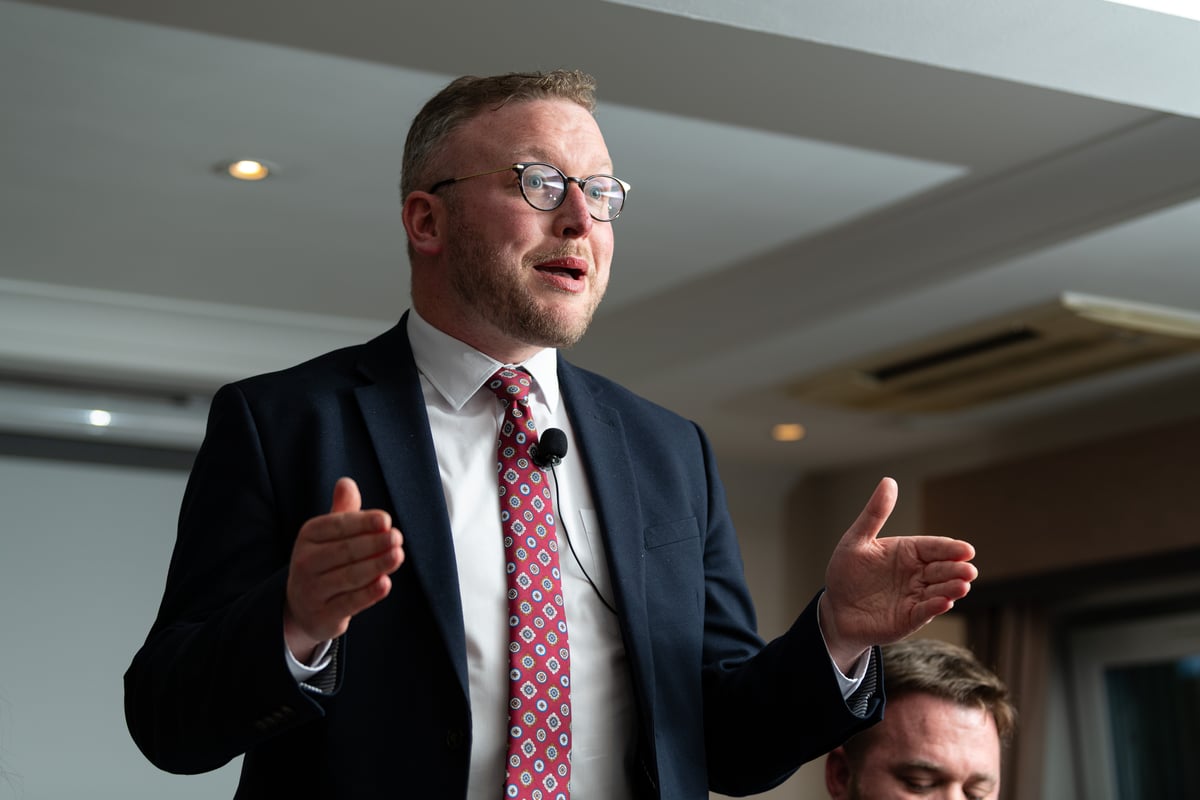It came during a hustings debate ahead of next month’s local elections, at which a member of the audience raised the issue of County Hall’s debt – and whether it could be considered “sustainable”. The subject had been brought up by Reform leader Nigel Farage on a visit to West Lancashire earlier this month, during which he claimed the county council’s £1.2bn borrowing requirement was generating a daily debt interest bill of £134,000 .
The authority later told the Local Democracy Reporting Service the figure was around £100,000 . Representing the Tories at the hustings event, Scott Smith – lead member for highways and active travel – said: “Lancashire County Council borrows to fund the purchase and maintenance of assets – things like schools, libraries [and] our roads, for example. Without that funding, through borrowing, we’d be able to do much less than we currently do now.

“Anyone who knows anything about finances knows that you have to measure liabilities, like debts, against assets – and the council has more than £3bn worth of assets right across the county, so the idea that the finances are somehow unsustainable, as Nigel Farage said...
[is] simply nonsense. “What on earth would Reform do differently? If you want to borrow less, tell us what services you would cut to do so,” County Cllr Smith said. Appearing on the debate panel for Reform UK, Stephen Atkinson – the outgoing leader of Ribble Valley Borough Council – criticised the county council’s financial strategy.
“Of the £1.2bn of debt, £700m is invested in government bonds to generate a return. The council thought that was a good idea [and] they would then get a return of about just over three percent on those bonds.
“When they were doing that in 2020 and 2021 it was great, but now it’s flipped – since the Liz Truss [budget] catastrophe and the Rachel Reeves catastrophe, the cost of borrowing now is over five percent so...
those investments are losing money. “Why are they borrowing money to invest it in bonds? That’s not what councils are about,” said Cllr Atkinson. However, the party political divide between the other panellists was bridged over the issue – with all of them rounding on the Reform stance.
The county council’s Labour opposition group leader, Matthew Tomlinson, said the authority was simply doing what it had previously enjoyed considerable success in – managing its cash balances. “Would you rather it just sit in a bank account earning 0.1 percent or would you rather the council invest that money to return an income to support the council tax?” County Cllr Tomlinson asked.
On the broader subject of debt, he added: “Do we want the council to buy [say] new gritters? Yes, we do. Does the council have the cash hanging around to do it? No, it doesn’t. “It’s a bit like saying you’ve got a mortgage, so you’re terribly in debt – and actually you should be ashamed of yourself for buying a house, because your annual income is £50,000 and you’ve got a debt of £250,000.
” The county council’s borrowing is for so-called ‘capital’ investments – such as new buildings or vehicles and the maintenance of facilities – rather than the day-to-day operation of services. Liberal Democrat county councillor John Potter accused Reform of making “simplistic arguments [about] stuff that’s complicated”. “[I’m] in an area that is crying out for a new school and needs that capital investment.
I know, because I’m sensible and I know how cash balances work, that you are going to have some level of debt to fund that school so children can go there in the future – and then you pay it off over time,” he said. After Cllr Atkinson said Reform would ”go to the government and ask them to help us out”, County Hall’s Green Party group leader Gina Dowding contrasted that position with Reform’s complaints about “high taxation”. She added: “It’s only the Greens that are saying, nationally, [that] we need to look at [how] we are going to make up this shortfall for.
..essential services – we need an extreme wealth tax.
“What it is about is rebalancing the national finances and actually reducing inequalities. Until you start to reduce inequalities between the..
.mega rich and those who are struggling on an everyday basis, nobody benefits.”.
Sports

'Borrowing is how we build and buy things': Lancashire county councillors defend debt after Farage criticism

A member of Lancashire County Council’s ruling Conservative group challenged Reform UK to say what services it would cut in order to reduce the authority’s level of borrowing.















